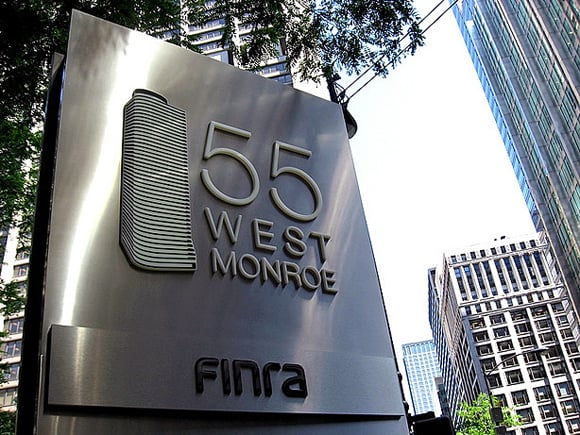Regulator cites lack of liquidity and high fees; product sales remain brisk
Finra continues to focus on nontraded real estate investment trusts.
This morning, the Financial Industry Regulatory Authority Inc. issued an alert to investors that outlines the products' features and potential drawbacks, such as high fees and a lack of liquidity. As the name suggests, nontraded REITs aren't listed on a national exchange.
“Turbulence in the stock market and an extended period of low interest rates have contributed to investors' seeking products offering attractive yields,” Finra's alert said. “One such product is the publicly registered non-exchange-traded real estate investment trust, or ‘nontraded REIT,' for short.”
The Finra investor alert is yet another indication of the regulator's intense interest in the product.
It was the first Finra alert about REITs, according to its website.
Such REITs are sold exclusively through independent broker-dealers, though executives with nontraded REIT sponsors said in private discussions that they intend to negotiate with the wirehouses also to sell the products.
Last month, Finra issued a rule proposal that would drastically change how the value of nontraded REITs appeared on client account statements, a nettlesome issue for independent broker-dealers that sell the products and the sponsors that create them. Finra's new proposal takes aim at brokers' commissions and other upfront costs.
And at the end of May, the regulator filed a complaint against David Lerner Associates Inc., claiming that the longtime share value of $11 for its Apple REITs was unreasonable in the face of market fluctuations and other events.
Finra's investor alert comes as the nontraded-REIT industry registers strong sales.
Investors bought close to $4.6 billion in nontraded REITs through June 30, according to two consultants who follow the industry. That put sales on a pace to top 2010's full-year total of about $8.4 billion, the third-highest ever, according to Direct Investments Spectrum, a newsletter that follows the nontraded-REIT marketplace.
“Nontraded REITs are generally illiquid, often for periods of eight years or more,” Finra said. “Early redemption of shares is often very limited, and fees associated with the sale of these products can be high and erode total returns.”
Front-end fees can be as much as 15% of the per-unit price, Finra said. Front-end underwriting fees for publicly traded REITs may be 7% or more of the offering proceeds, plus a brokerage commission for investors who buy shares in the open market, according to Finra.
The regulator in its alert highlighted a number of “complexities and risks” associated with the product.
One such “risk” is nontraded REITs' dividends, which are an essential component to attracting investors to the product. Known as “distributions” in the industry, they “are not guaranteed and may exceed operating cash flow,” according to Finra.
“Distributions can be suspended for a period of time or halted altogether,” according to the Finra alert.
In fact, some leading REIT sponsors that struggled during the credit crisis cut investor distributions. Michael Stubben, president of MTS Research Advisors, which analyzes nontraded REITs, pointed out that Finra's attention to nontraded REITs is “probably driven by the struggles of some older programs” that cut dividends and saw valuations fall. It's also aimed, he added, at “getting advisers to understand the risks” of the products..







